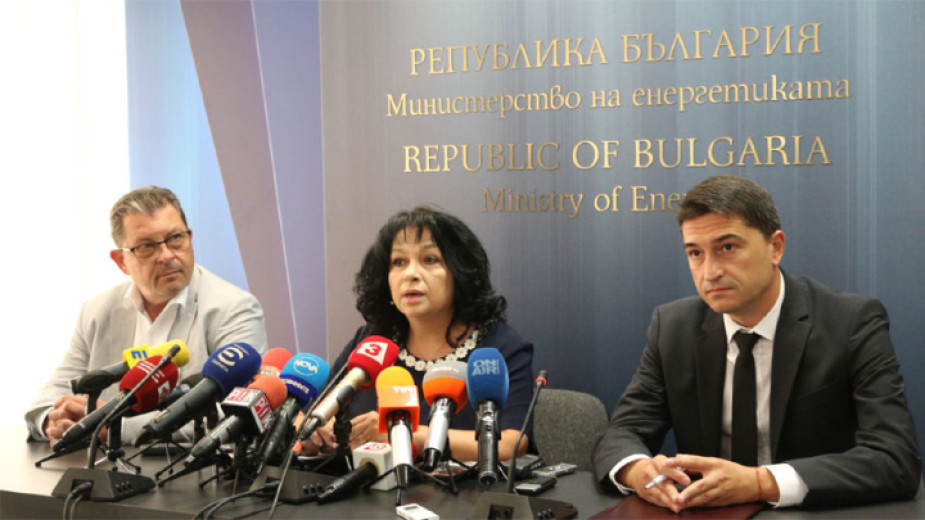
On Tuesday 13 companies submitted applications for participation in the implementation of the project for second Bulgarian nuclear power plant in Belene on the Danube River. In the course of 90 days Bulgarian experts will assess the offers and will shortlist the candidates. Later, Bulgaria will start negotiations with these companies. The talks are expected to end in one year or so.
The project for second Bulgarian NPP is nearly 40 years old. The construction never began during the communist period due to the county’s indebtedness. The new energy facility again become topical in the years of transition from communism to democracy, but the difficulties continued. The Bulgarian authorities were about to launch the construction of Belene NPP several times, but the National Assembly suspended the project after the National Referendum held in 2012.
However, the Bulgarian authorities slowly realized that nearly EUR 1 billion was invested in the suspended project and that this money should not go to waste. Moreover, during the term of office of one of the Bulgarian cabinets Bulgaria ordered two 1,000 megawatt nuclear reactors to the tune of over EUR 600 million. The Russian energy company Atmostroyexport manufactured the two reactors in accordance with the contract and delivered the nuclear facilities to Bulgaria, although the project was already suspended by the Bulgarian Parliament. Thus, Bulgaria received two nuclear reactors only, because no construction works had been done on the nuclear facility site in Belene. After long and difficult negotiations and the decision of the international court of arbitration, the Bulgarian authorities had to pay the money for the delivered nuclear reactors which are still kept in a warehouse. Apparently, things could not continue the same way, because Bulgaria had already paid EUR 2 billion for the suspended project. Scientists from the Bulgarian Academy of Sciences were asked by the Bulgarian authorities to make analysis of the project. Bulgaria also tried to sell the Russian nuclear reactors to other countries, but its efforts did not yield results.
In 2018, the Bulgarian National Assembly lifted the ban and the Bulgarian authorities decided to complete the project without, however, investing anymore public finance. That is why Bulgaria invited large public companies from the energy sector to become strategic investors in Belene NPP. However, the future investors will not receive any state guarantee. The Bulgarian authorities are now happy with the large number of applicant who submitted their documents to participate in the construction of the second nuclear power plant in this country. It is still early to say whether 13 will be the lucky number for Belene NPP and Bulgaria. However, this time Bulgaria is pinning big hopes on this project. Seven companies, including two Bulgarian consortiums, one company registered in Germany and a Bulgarian company with Czech capital submitted applications to become strategic investors in Belene NPP, this country’s Minister of Energy Temenuzhka Petkova announced. The Russian energy giant Rosatom, the China National Nuclear Corporation CNNP and the Korea Hydro & Nuclear Power Co are among the applicants. The US energy company General Electric and the French Framatome also promised to join the project as suppliers of equipment and in the financial structuring of the project which should not exceed EUR 10 billion. North Macedonia also shows interest to participate in the project as minority shareholder. This country may also buy electricity from the future Belene NPP which corresponds with the idea of Bulgaria’s Premier Boyko Borissov who would like to see Belene become a Balkan project. The Belene NPP project is important for the entire Balkan region, this country’s Energy Minister Temenuzhka Petkova said.
It is hard to say whether the Belene NPP project will be fulfilled. In this case we are not talking about money only, but also of geopolitics as well. It is not clear how the Western European Countries and the USA will look at a project which may be fulfilled with Russian or Chinese participation.
English version: Kostadin Atanasov
As of January 1, 2026, the minimum monthly wage should be 1,213 BGN (EUR 620.2), up from the current 1,077 BGN (EUR 550.66), said Luboslav Kostov, Chief Economist at the Confederation of Independent Trade Unions in Bulgaria (CITUB), in an interview..
Inflation in the EU in July reached 2.4% on an annual basis , according to Eurostat data. Regarding Bulgaria, European statistics report an increase in inflation to 3.4% in July this year compared to the same month last year. According to this..
For the period January-June 2025, the net flow of foreign direct investment in the country reached EUR 848 million (0.8% of GDP), which represents a decrease of EUR 31.4 million compared to the same period in 2024. In June 2025, the flow was negative..
With the introduction of the euro on January 1, Bulgaria will benefit from the stability, liquidity and all the advantages of the common currency,..

+359 2 9336 661
